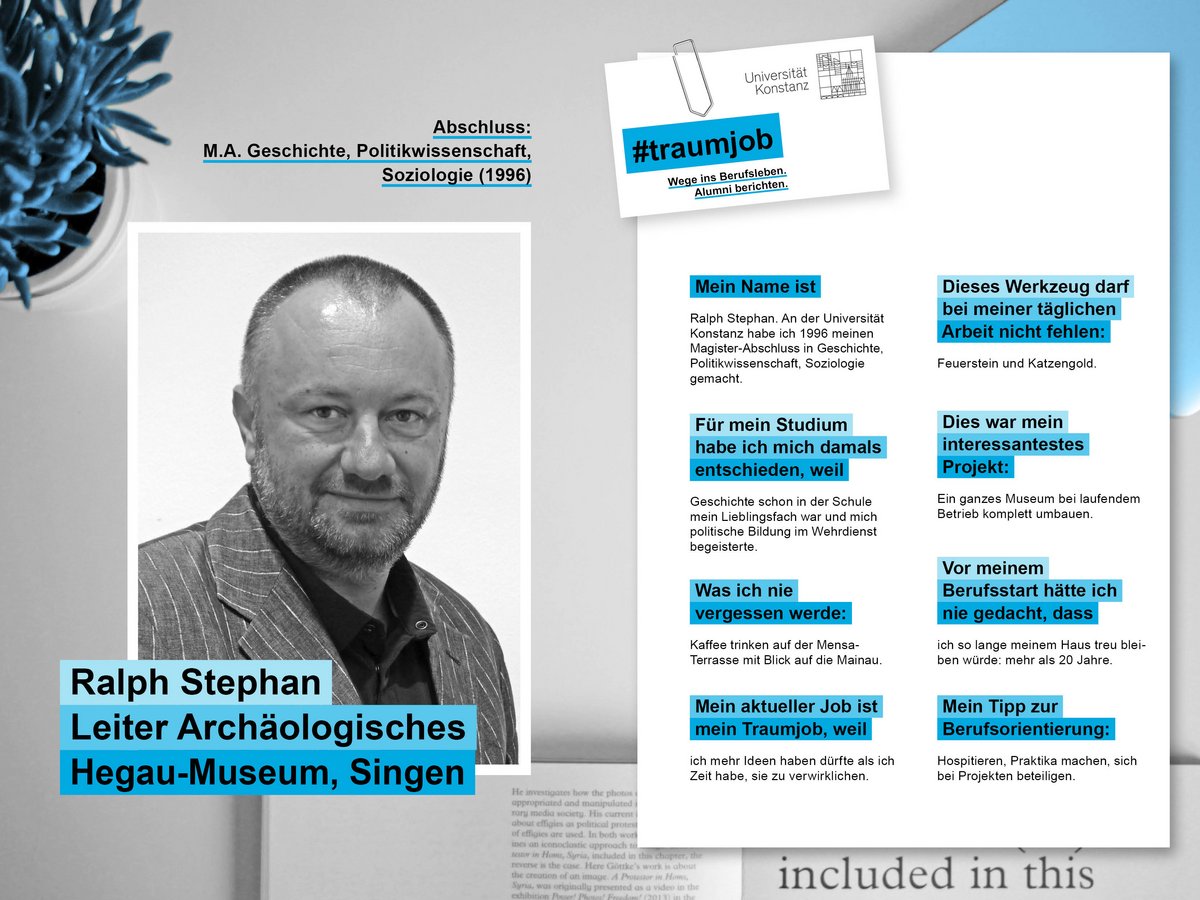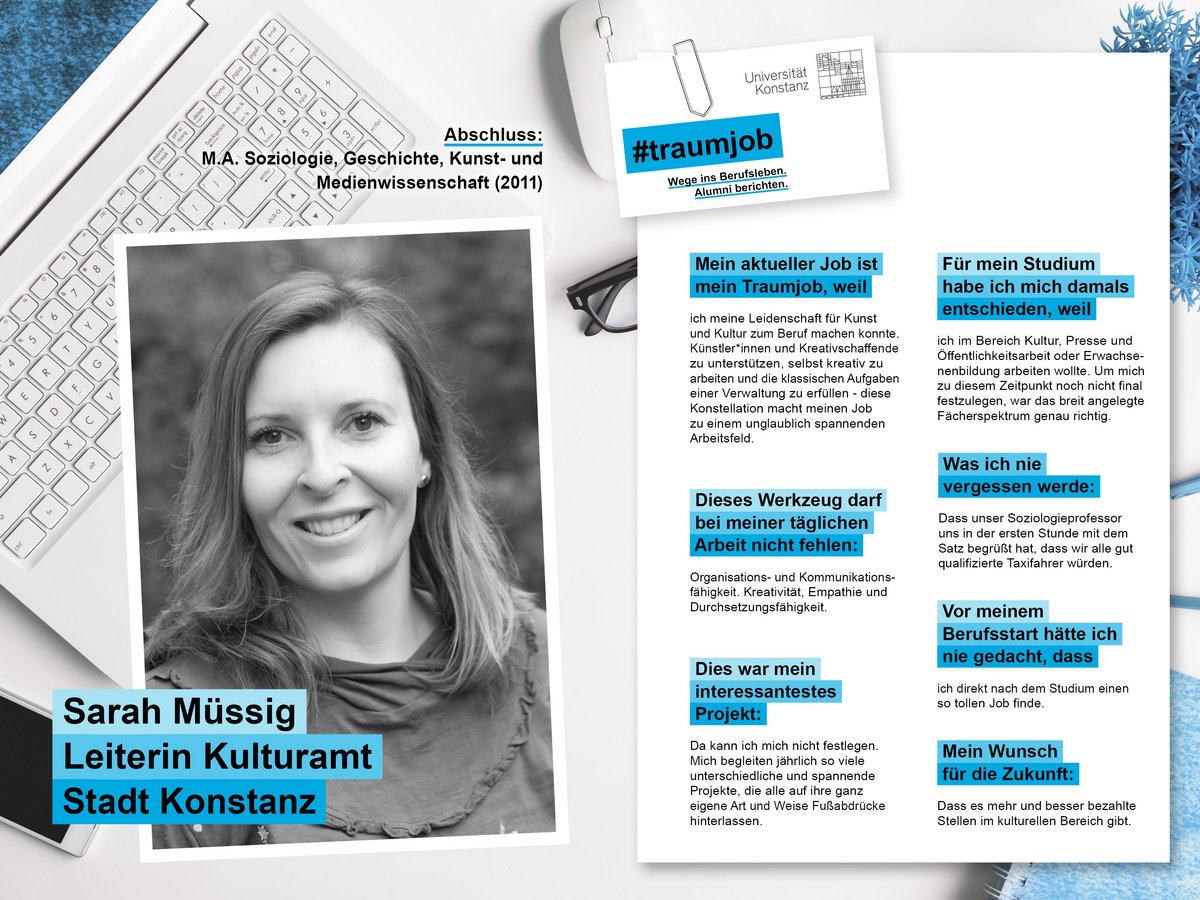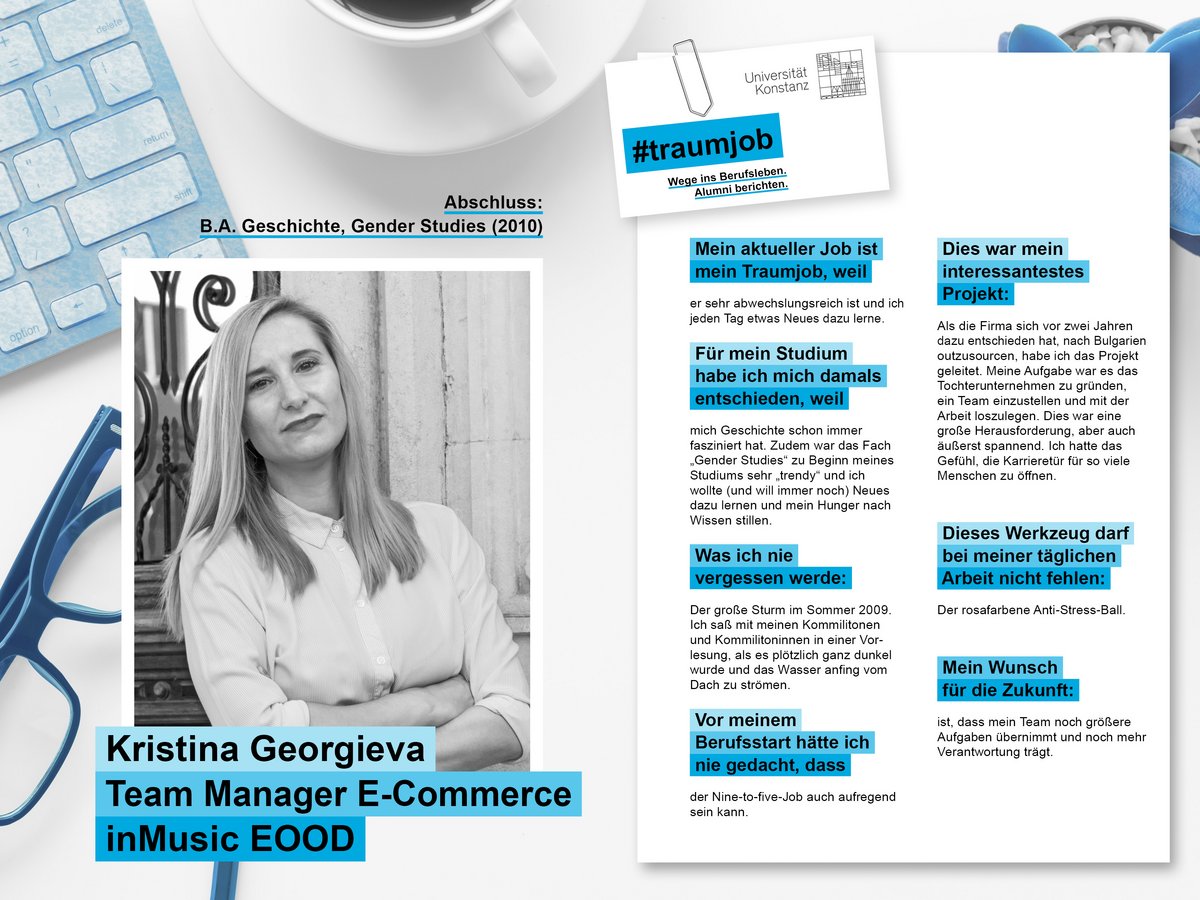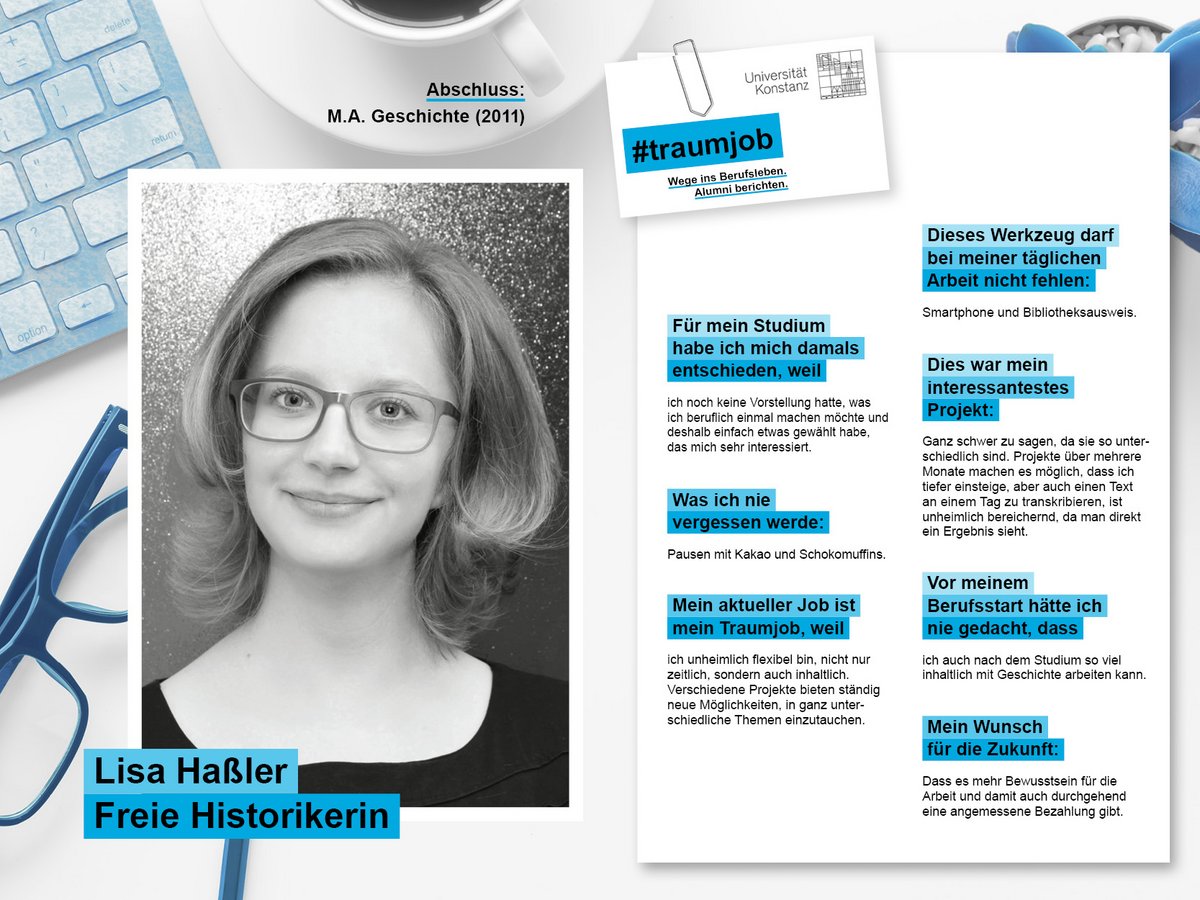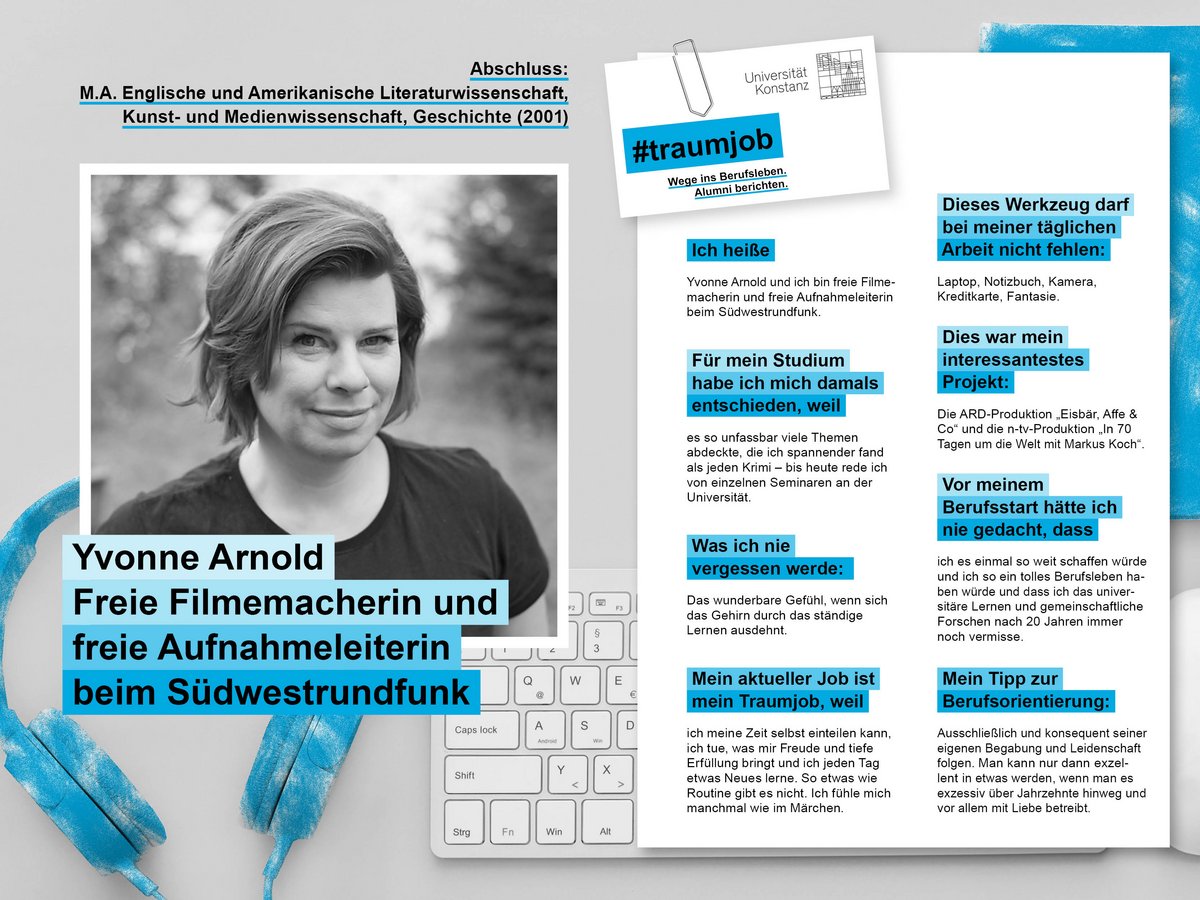Job prospects and career opportunities with a degree in history
Discovering the past - shaping the future
Would you like to understand people, events and the present? Do you enjoy analysing and questioning conditions, ideas, circumstances and change? Do you enjoy taking part in discussions and can deal with different opinions and perspectives? Reading and building up your own opinion are activities you enjoy doing? Then studying history is just right for you!
History is a text-oriented humanities subject: you will read, analyse, compare and write a lot in order to understand the world around you. History also becomes tangible in the form of buildings, monuments or exhibitions. Historians therefore not only preserve human heritage, they also pass it on to future generations.
Are you wondering what career opportunities are available to historians in a constantly changing professional world? Would you like to get to know the opportunities on the labour market? The answers are as multifaceted and complex as history itself!
In addition to a broad historical knowledge, prospective historians acquire sound knowledge of academic work: from searching for sources, analysing and contextualising them to writing academic texts that are comprehensible and verifiable. Historians can deal with unstructured data and are able to quickly familiarise themselves with new subject areas and gain an overview.
All of these aspects train critical, analytical and networked thinking, develop problem-solving skills, build up intercultural sensitivity and allow historians to break down complex issues into small units and presented them in writing or orally in an appropriate manner.
Despite the widespread perception that the humanities do not offer good career opportunities, historians are more needed than ever, as these skills are not only required in traditional historical professions, such as museum or archive work, but are also highly demanded in numerous other areas.
During your studies, you will fill and expand your own personal ‘toolbox’ in order to be able to scientifically answer historical questions with historical knowledge, theories, methods, data and critical thinking.
Studying history does not prepare you for a specific profession, but rather allows you to specialise in different areas and focus on individual topics. Therefore, your success primarly depends on what you make out of the historical content and the study programme, what you are interested in and where your personal strengths lie.
In addition to historical content, you can also learn new languages and acquire additional professional certificates during your studies (e.g. in the fields of art and culture, media and journalism, human resources and organisation, project management) or learn how to use specific software and data processing programs. A compulsory internship and other voluntary internships are a first good opportunity to get some work experience and to start a career in a professional field of your choice.
Potential career fields
Our students (internship) and our graduates work in very different areas:
- in the cultural, art and media sector (archive, library, museum, publishing, journalism, cultural management, foundations, galleries, press office)
- in research at universities and state research institutions
- in companies (e.g. in the areas of training and further education, public relations/PR, project and change management), in the education sector and in the areas of history marketing and corporate history
- in management consulting
- in associations and organisations
- in public authorities, ministries, non-governmental organisations (NGOs), international organisations
- in political parties and state institutions
- in public administration (e.g. universities, city councils, district administrations)
Further possibilities
For a career in academia and for further specialisation, you can complete a Master's degree and then do a doctorate.
A university library is a link between a library, research and teaching. If you are considering working as a specialised university librarian, you must first complete a librarian traineeship in the higher administration service for Baden Württemberg.
A traineeship (in German: Volotariat) is usually required for a career in journalism.
Many national and international companies and organisations offer trainee programmes and programmes for young professionals.
Curious? Discover our alumni jobs and find out what they say about their time while studying in Konstanz #dreamjob Faculty of Humanities
Music: Bless me by FRAMETRAXX Gemafreie Musik - available at: https://www.frametraxx.de/info/kostenlose-gemafreie-musik.html
External Page
To view this content (source: www.xyz.de ), please click on Accept. We would like to point out that by accepting this iframe, data could be transmitted to third parties or cookies may be stored.
You can find more information on our privacy policy .


